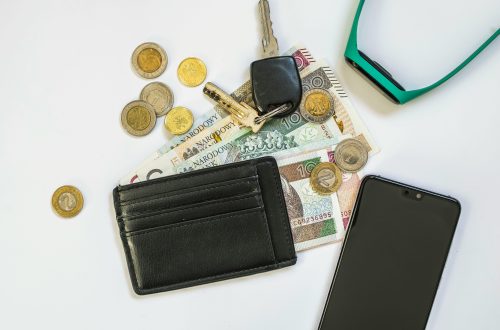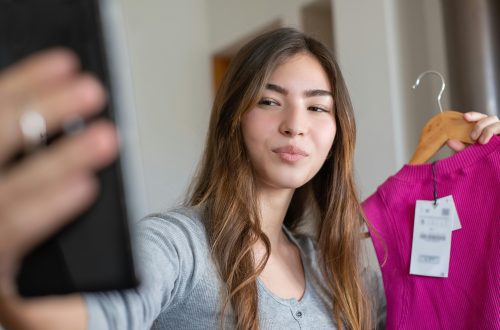
Explaining the Impact of Social Media Algorithms on Mental Health and What You Need to Know?
Social media algorithms work as virtual matchmakers. These algorithms are designed to match users with content they prefer to spend their time on. The purpose is to ensure meaningful connections by analyzing user behavior, interactions, and interests. This helps the social media platform to connect users with their preferred personalized content.
Social media algorithms are designed to stay updated on trends and user preferences. That’s why these algorithms embrace changes, adapt swiftly, and evolve to become more complex, making it crucial to stay updated on trends.
Why are Social Media Algorithms Important?
Social media platforms comprise filtering systems that help users to navigate through infinite posts. Social media algorithms work as an intelligent guide that carefully sorts and matches the content preferred by the audience.
For instance, when a post or video is published on a social media account, the algorithms sort out this content according to users’ preferences. This prevents users from diving into endless unwanted content and helps them explore according to their interests.
These algorithms prolong user engagement by controlling content sequence. Along with that, these algorithms closely manipulate recommendations and visibility based on user data. If you interact with sports-related posts, you will see more such content.
Now, users have great control over their content by customizing their posts and comments and selecting their content. When more users find your content, the algorithm becomes better and targets users with the same interests.
You can gain better engagement by optimizing content for algorithms and leveraging its distribution. In other cases, users have to seek out their leading to problems for both users and marketers.
What is Confirmation Bias and Why it is Dangerous for Social Media Users?
The polarization of social media algorithms provides an instructive example. Through these examples, filter bubbles are created. These filter bubbles select stories and information based on the consumer’s past engagement, “protecting” its user from opposing views.
All these phenomena result in endless echo chambers where like minds support one another. Both filter bubbles and echo chambers give rise to a little something called confirmation bias. Confirmation bias is the tendency of people who are really searching for and reading material with which they already agree.
Confirmation bias is dangerous for society and leads to increased polarization that induces consequences in the real world. For example, when people get connected to a political party, they promote their cause on social media and oppose the competitive party’s view. The situation sometimes leads to animosity that amplifies the existing prejudice and reinforces negative stereotypes in society.
Impacts of Social Media Algorithms on Mental Health
We usually scroll mindlessly through social media for hours. This excess is linked to several negative emotions like loneliness and despair. Psychiatrists are well aware of these negative impacts, and today, the impact of social media algorithms on mental health is a popular topic.
Social media algorithms lead to anxiety, depression, dissatisfaction, and decreased life value. If the user is already combating these issues, then excessive use of social media leads to feelings of isolation and loneliness. Such a person will have disrupted sleep patterns and loss of memory.
These problems are common in young users. They are bullied online, and unlike on-ground bullying, they don’t know how and where to retrieve. When they get humiliated for an image or video they share online, they can’t escape it by moving to a new state.

Online Comparison and Destroyed Self-Esteem
There’s a whole lot of debate about the disastrous effects of social media on individuals. The young generation attracted to social media platforms gets inspired by the high points of people’s lives, considering theirs as lowlights. Especially those in preadolescence and adolescence, they compare themselves to the glamorized and hyped-out social media influencers.
This leads to situations where they develop mental health issues like low self-esteem, negative body image, and a fear of missing out. The connection between social media algorithms and mental health issues is that algorithms create a cycle by showing users more content that relates to their deep feelings of inadequacy.
How to Combat the Effects of Social Media Algorithms on Mental Health
Here’s your way to combat the effects of social media algorithms on your mental health.
1. Be Mindful When Using Social Media Habits
Social media use involves hours of scrolling, which you need to control by staying conscious and aware of patterns. For example, take note of your scrolling pattern, how much you use social media, and how you feel after using social media.
If you feel a lack of interest in life after using social media or you are depressed, have lower self-esteem, or feel like a loser, then you have to lessen the time you spend on social media and be more mindful of what you are watching to make the algorithms share some useful content in suggestions.

2. Set Your Time Limit
A study published by JAMA Psychiatry showed that the amount spent daily is linked to negative emotions. Especially those in adolescence, when they use social media for more than 3 hours per day face a higher risk of mental health issues.
Using different apps, you can track, monitor, and block the amount spent on social media. Your Activity tab on Instagram also shows the average time spent daily. You can also follow two rules to lessen your social media consumption.
- Do not use social media within an hour before going to bed and after getting up
- Set a timer of 15-20 mins. Scroll in that time. After that, leave all social media sites for at least 2 hours. Do your chores, have a meal with your family, focus on your work, take a walk, or do any exercises.
- When you know it’s time to sleep, stop scrolling and go to bed. Remember that we have the power to exit this delusional world, so use it before it’s too late.
- Connect with people who inspire you to do something better. Filter out these accounts and groups, join them, and have a positive network of your own.
Conclusion
Social media has now become a part of our culture, and there is a dire need to be proactive about its usage. Social media algorithms work according to our interests, and therefore, it is crucial to choose something worth watching.





